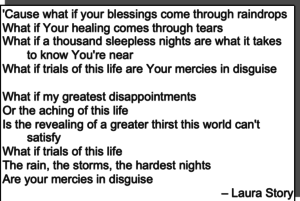Sometimes a need to confirm a theological point of view hides a scriptural message that ought to be evident within the sacred text. Remember Jonah? …who according to his own testimony was 3 days in the “womb of the grave” [Jonah 2:2] which the NIV translated in a poetic line: “deep in the realm of the dead.” He was buried alive! Just say it! Then we might linger a moment in silence before launching into an obtuse opprobrium about Jonah’s disobedience, lack of faith, and unexplained prejudiced hostility toward the Ninevites, whom God mercifully sought to pardon.
Jonah was buried alive!! …and spend three horrifying days in a nightmare he could not wake up from: the smelly, stale air confines of a beast, a great fish, that probably was tossing him, metaphorically speaking, from roof to floor and side to side. Atheism dismisses this as pure fable because we know of no such leviathan, although, we are told that 99% of all species that ever existed are now extinct.1
 The point of this very human story is being missed by these two exegetical extremes, because the real story traces the emotional turmoil of a prophet who had every sign of PTSD.2 The account, using a Hebrew word for “evil,” simply says that Jonah was heavily distressed, overwhelmingly miserable, and enraged.
The point of this very human story is being missed by these two exegetical extremes, because the real story traces the emotional turmoil of a prophet who had every sign of PTSD.2 The account, using a Hebrew word for “evil,” simply says that Jonah was heavily distressed, overwhelmingly miserable, and enraged.
…at God? You decide, but I don’t think the outward target of his rage is important. [Jonah 4:1]. Often we misdirect our anger when in pain. The Greek [LXX] is the best translation: Jonah was in great pain—an emotional pain along with a pronounced physical discomfort.
The KJV says “displeased.” Displeased is what I feel when a five year old son spills a glass of milk because he was fussing instead of eating his lunch. “Displeased” doesn’t fit the moment you awaken by some miracle of God after having been Buried Alive!
After Jonah delivered God’s message, he retired east of town where his thoughts turned suicidal. [Jonah 4:3]. The Greek translation, again, is picturesque: Jonah was in great pain.
We are sadly too anxious to discuss God’s mercy toward the Gentiles to be too concerned about the experience of this wayward prophet, who—okay—was stupid to run from God. I get it. I get it: our theological interest in grace. …until it’s …me we’re talking about! Then I don’t want to talk about people I think deserve something other than divine mercy while I’m imploding.
I like the last few verses in this prophecy in which God, being the God that He is, provides His servant, confused, perhaps, and hurting, with temporary shade that momentarily soothes his anxious spirit and gives him pause from all that has recently gone wrong in his life. …and then God asks, “Jonah, tell me what angers you so? Tell me all about it, son.” [Jonah 4:4-8]
God knew. God always knows! Then God gently redirects Jonah’s thoughts forward to a merciful tomorrow, toward a time when God will be able to love even Ninevites. [Jonah 4:10-11]
If I’m on to something here, Jonah’s prejudice toward Nineveh, thanks to a storm and a fish, was no longer the center of the prophet’s attention. He simply needed God. He needed God’s touch on His own life which—I surmise—gave Jonah an altered perspective on a God Whose love cannot be exhausted on Israel or the tribe of Zebulon or the town of Gathhepher from where Jonah hailed. [2Ki 14:25]
And was God cruel for using something as tortuous as a three day ride in a “prepared fish” [Jonah 1:17]—even if the Creator had His Son on His mind at the time!
For as Jonah was three days and three nights in the belly of a huge fish, so the Son of Man will be three days and three nights in the heart of the earth. – Matthew 12:40
I won’t argue a response because life is riddled with misadventure and pain for every believer and an answer for Jonah has to work for all of us—don’t you think? The straight truth is the such circumstances somehow provide God with far more visibility in our lives. Somehow faith is purified in fire. [I Peter 1:7] ..and God does heal!
All I know is that the story begins with God’s servant running from Him and ends with this same servant talking to Him in meaningful prayer and communion.
1More than 99 percent of all species, amounting to over five billion species, that ever lived on Earth are estimated to have died out. Estimates on the number of Earth’s current species range from 10 million to 14 million, of which about 1.2 million have been documented and over 86 percent have not yet been described. Wiki
2PTSD symptoms:
- Feeling upset by things that remind you of what happened
- Having nightmares, vivid memories, or flashbacks of the event that make you feel like it’s happening all over again
- Feeling emotionally cut off from others
- Feeling numb or losing interest in things you used to care about
- Feeling constantly on guard
- Feeling irritated or having angry outbursts
- Having difficulty sleeping
- Having trouble concentrating
- Being jumpy or easily startled



I think Jonah really thought in order to receive love from God he and his people should be rescued and protected first. I heard that the Gentiles in that time period weren’t very nice to the Jews unfortunately. Jonah just didn’t understand why God wanted him to go to help save the Gentiles.
I agree he was mentally challenged
I agree that he learned that God wanted to help both peoples.